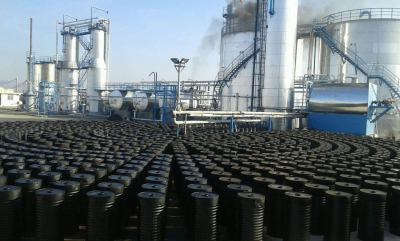Bitumen is a black, viscous material derived from petroleum. It is primarily used in road construction and roofing due to its waterproofing and adhesive properties. Here are key aspects of bitumen:
Composition and Types:
Natural Bitumen: Found in natural deposits and similar to crude oil.
Processed Bitumen: Obtained through the distillation of crude oil, typically during the production of gasoline and other petroleum products.
Properties:
Adhesive: Bitumen binds aggregates in asphalt mixtures for road construction.
Waterproof: It provides a barrier against water, making it ideal for roofing and sealing applications.
Viscoelastic: Bitumen exhibits both viscous and elastic properties, which helps in absorbing stress and preventing cracking.
Applications:
Road Construction: Used to produce asphalt concrete, providing a durable and smooth surface for roads.
Roofing: Utilized in shingles and roofing felt for its waterproofing properties.
Waterproofing: Employed in damp-proofing, sealing foundations, and lining canals and reservoirs.
Industrial Uses: Applied in the production of paints, coatings, and insulation materials.
Environmental and Health Aspects:
Environmental Impact: Extraction and processing of bitumen can have significant environmental consequences, including habitat disruption and greenhouse gas emissions.
Health Concerns: Workers handling bitumen may face health risks from exposure to fumes and skin contact, necessitating safety measures.
Alternative and Innovations:
Bio-bitumen: Research is ongoing to develop bitumen from renewable resources, reducing reliance on petroleum.
Recycling: Reclaimed asphalt pavement (RAP) involves recycling old asphalt to produce new road surfaces, reducing the demand for fresh bitumen.
Bitumen’s versatility and effectiveness in construction make it a critical material in infrastructure development, while ongoing advancements aim to mitigate its environmental and health impacts.








